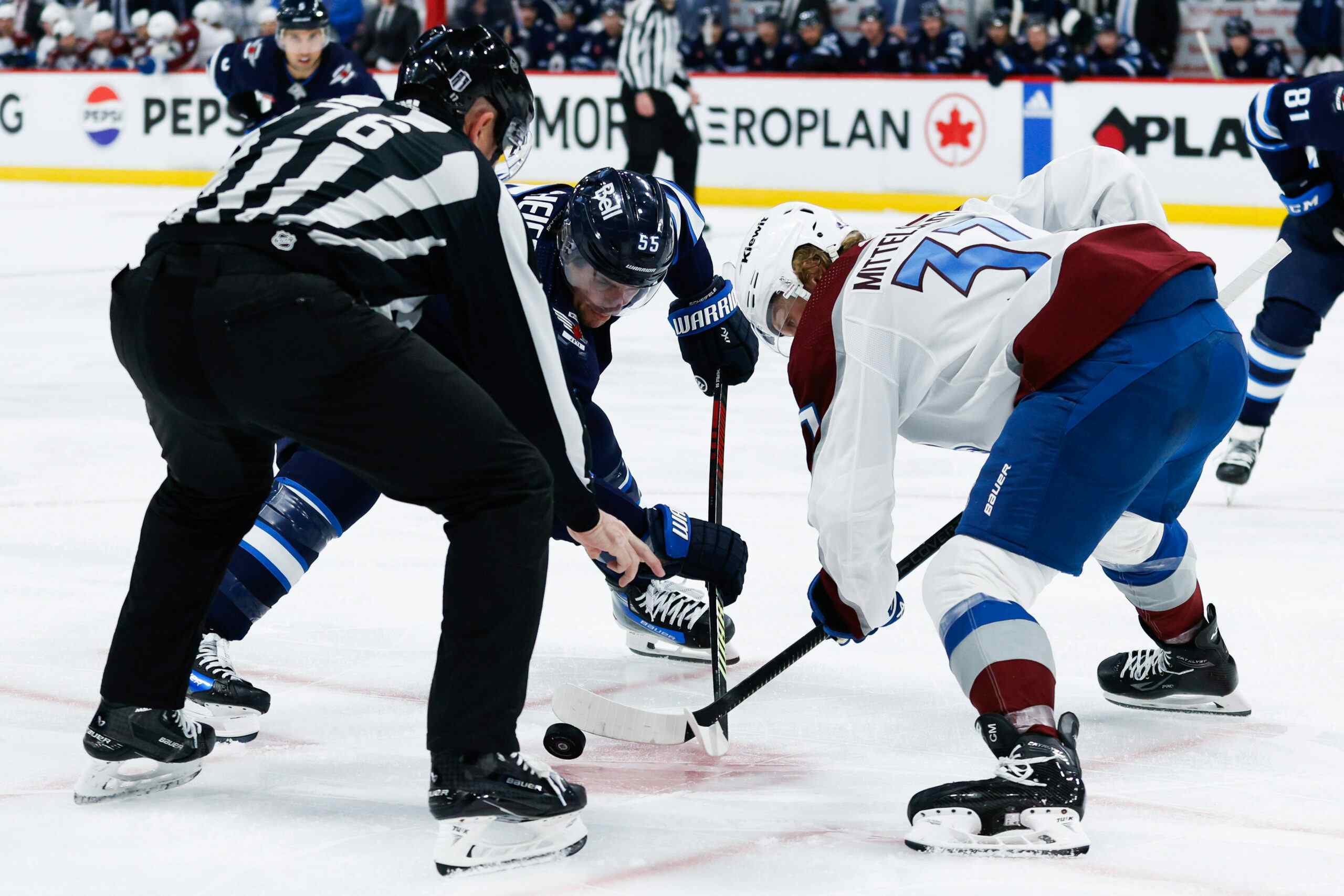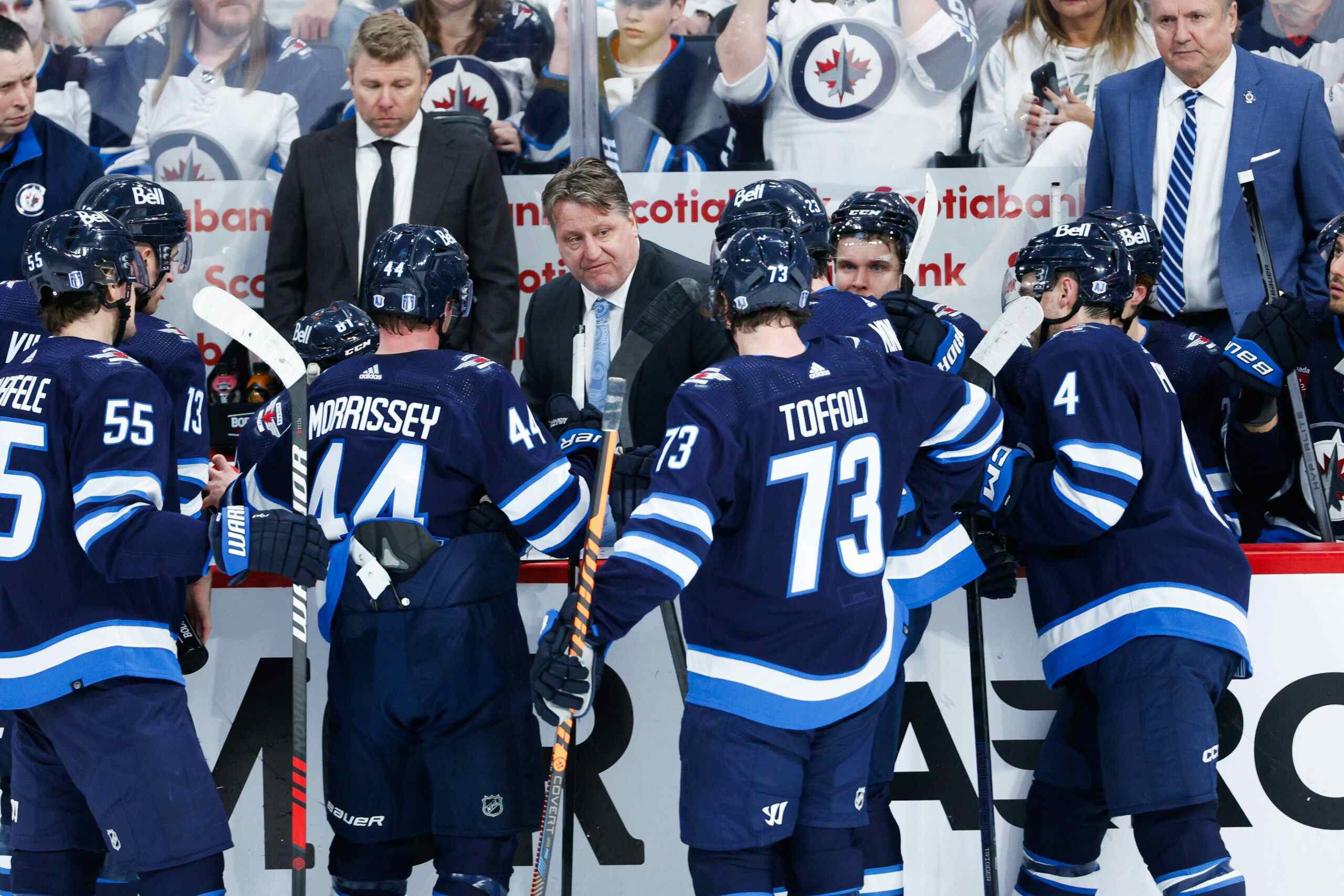Blake Wheeler – Arbitration Case

The Jets have one player eligible for arbitration this summer, with Blake Wheeler having a scheduled hearing on August 3rd. Wheeler joined the team in February of 2011 after a trade that sent the 24 year old winger from Boston along with Mark Stuart in exchange for Rich Peverly and Boris Valabik. The Minnesota native managed 17 points in 23 games for the Thrashers, and will be expected to play top-six minutes for Winnipeg this coming year.
As an excercise to make the summer go a bit faster ;-), Jets Nation will present a mock arbitration submission for Wheeler in the spirit of the offering Kent Wilson and I made last summer for Ian White at Flames Nation. As an FYI, Jamie Fitzpatrick’s article from 2008 lays out the rules for RFA arbitration. We’ll examine the evidence from the player’s POV today, to be followed by a presentation outlining the club’s case later this week.
Brief on behalf of the Player (Blake Wheeler)
Overview:
Mr. Wheeler is an emerging power forward at the NHL level that has just completed his third full year in the league. He possesses fine physical tools, with a combination of size and goal scoring ability that is not particularly common even at the highest level. He is also a very durable player, having played 244 of 246 possible games since he began his career with the Bruins in 2008.
Over that time, Wheeler has faced top-six competition at even strength every season, and has outshot and outscored that competition along the way. He finished his latest year at +10, including +2 in his 23 games with Atlanta after joining the club in February of 2011.
It should be noted that Wheeler has also been a player that has been able to compile top-six scoring totals despite relatively infrequent power play time. This past season, he accrued 39 of his 44 total points at EV, which placed him tied for 55th in the NHL, alongside such players as Mike Richards, Mikko Koivu, Ryan Kesler and Ilya Kovalchuk. His 2.20 pts/60 at even strength was the best total on the Thrashers, and that average was obtained despite the fact he had the poorest shooting percentage of his career.
It should be noted that Wheeler’s ice time and offensive opportunities did increase when he changed teams this past season, but his performance improved with that change. Wheeler scored 17 points in 23 games, or an average of .74 PPG, and continued his excellent EV play, tallying 14 even strength points during that time. Since EV play constitutes about 75% of the total ice time in the NHL over the course of a season, the ability to score while playing at even strength is a good indicator of a player’s ability, and Blake Wheeler has shown he possesses that skill in all three of his seasons at the highest level of the game.
Comparables:
For the purposes of this exercise, three platform seasons have been selected. They are Andrei Kostitsyn (2010/11), Alexander Steen (2009/10), and Drew Stafford (2010/11). All advanced numbers are from Behind the Net. The QComp and Zone Start numbers are for regular forwards on their respective teams, with 1st representing hardest. Most teams will have at least 9 forwards that play 10 EV minutes in at least 40 games. For Relative Corsi, 1st would represent the best number amongst that same peer group of forwards. The salary numbers are the average cap hit for each player in the subsequent season.
| Kostitsyn | Steen | Stafford | Wheeler | |
|---|---|---|---|---|
| GP | 81 | 68 | 62 | 81 |
| Qcomp | 4th/9 | 2nd/11 | 8th/12 | 2nd/11 |
| ZoneStart | 7th/9 | 4th/11 | 9th/12 | 6th/11 |
| Rel. Corsi | 6th/9 | 8th/11 | 8th/12 | 4th/11 |
| EVTOI | 13:36 | 12:26 | 13:14 | 13:34 |
| PKTOI | 2:16 | 2:43 | 2:57 | 1:19 |
| PPTOI | 0:00 | 1:06 | :20 | 1:20 |
| PPPTS/60 | 2.41 | 5.01 | 6.71 | 2.82 |
| EVPTS/60 | 1.83 | 2.11 | 2.20 | 2.20 |
| EV GD/60 | 0.17 | 0.44 | 1.29 | 0.51 |
| PDO | 100.9 | 101.6 | 103.5 | 100.7 |
| Salary | 3.25M | 3.362M | 4.0M | TBA |
As you can see, Blake Wheeler’s 2010/11 matches the platform years of these players at even strength. Wheeler played slightly easier ice time than Steen, but faced tougher competition than Kostitsyn and markedly tougher competition than Drew Stafford. The fact that Stafford’s goal differential appears so gaudy is almost certainly due to the favourable surroundings and friendly percentages that a 103.5 PDO would indicate, since the Sabres barely outshot the opposition when he was on the ice.
On the PP, Wheeler lags Steen and Stafford, but circumstance might well have played a role in that, as Wheeler was rarely on Boston’s first PP. Even with that, he did outscore Kostitsyn on a per 60 minute basis.
Another item that should be noted is that only Steen and Wheeler were regular penalty killers amongst this group, with Kostitsyn and Stafford not featuring on their teams’ PK in any significant way. It is fair to suggest that Wheeler is in range of all of these players in general terms, and had a superior year to Kostitsyn by most measures.
Summary:
Blake Wheeler has been a consistent top-six producer in the NHL over his three seasons. Given the productivity he has already shown relative to others in his peer group and the fact that he improved his performance when asked to take on more responsibility and ice time in Atlanta, he should be in receipt of a significant raise, and with that, an awarded salary of 3.65 million for the 2011/12 season is in order.
Recent articles from Robert Cleave





